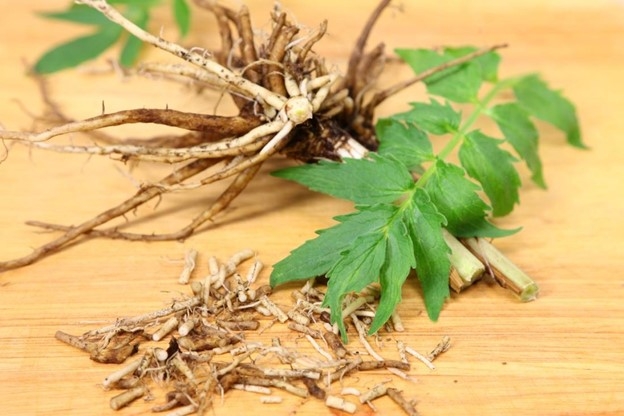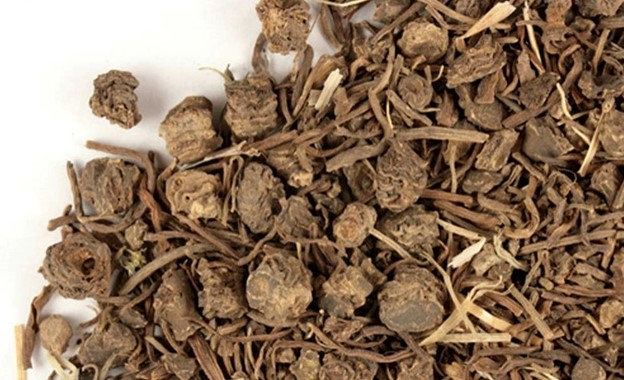Valerian is a perennial plant in the Valerianaceae family, native to Europe and Asia. Valerian is notable for its small pink or white flowers that bloom in the summer, but it is the root that is most important. The root has a distinctive, strong odor, unlike the light scent of the flowers. However, behind that strong scent are valuable compounds such as valerenic acid, sesquiterpenes, and valepotriates.
Studies show that these substances can have a calming effect on the central nervous system, helping to reduce stress, anxiety and improve sleep. Therefore, valerian root has long been used in traditional medicine to treat neurological problems. In addition, this herb also brings many other surprising health benefits.

Helps reduce symptoms of anxiety and stress
Scientists have discovered that valerian root, especially the valerenic acid component, has the ability to affect the central nervous system through the mechanism of enhancing the activity of the inhibitory neurotransmitter GABA. GABA (gamma-aminobutyric acid) is a neurotransmitter that plays an important role in regulating the activity of the nervous system, helping to reduce stress, anxiety and facilitate good sleep.
Lower blood pressure
Studies show that valerian root can help the body regulate blood pressure naturally. By reducing stress and anxiety, valerian root may help lower blood pressure, especially in stressful situations.
Controlling blood pressure is key to maintaining heart health. High blood pressure can increase the risk of serious heart conditions such as heart attack, stroke, and heart failure. Therefore, valerian root’s ability to help regulate blood pressure may contribute to overall heart health.

Reduce menstrual cramps
Valerian root acts as a natural sedative and antispasmodic. This means that it can inhibit uterine muscle contractions, which are the main cause of menstrual cramps. By relaxing the smooth muscles of the uterus, valerian root helps relieve the cramping and discomfort that is common during menstruation.
Improve menopausal symptoms
Valerian root is not only a traditional herb but also a powerful "assistant" for women during menopause. With its ability to affect the nervous system, valerian root helps regulate hot flashes, reducing both intensity and frequency. Results from a 2018 study demonstrated that taking 1,060 mg of valerian root extract daily for 2 months can help reduce hot flashes in postmenopausal women. This is good news for those who are looking for a natural and effective solution to deal with menopausal symptoms.
Notes when using valerian root
- Do not use for pregnant or lactating women.
- Do not use for children under 12 years old.
- Do not use with alcohol or other sedatives.
- May cause drowsiness or dizziness in some people.
- If any side effects occur, discontinue use and consult a doctor.


































































































Comment (0)